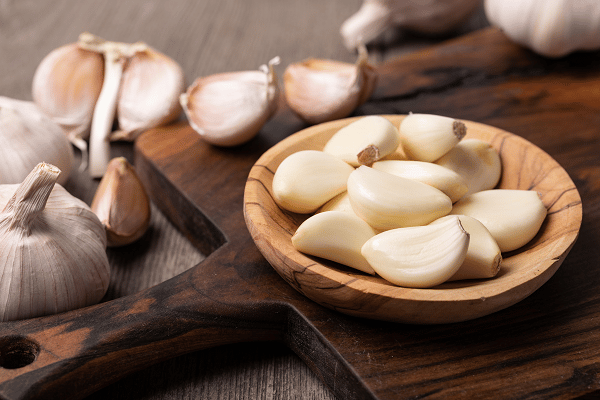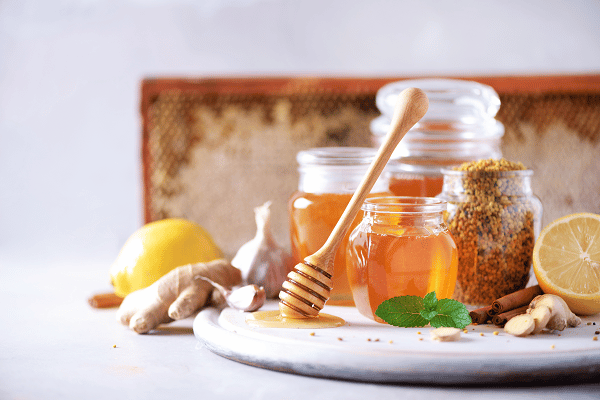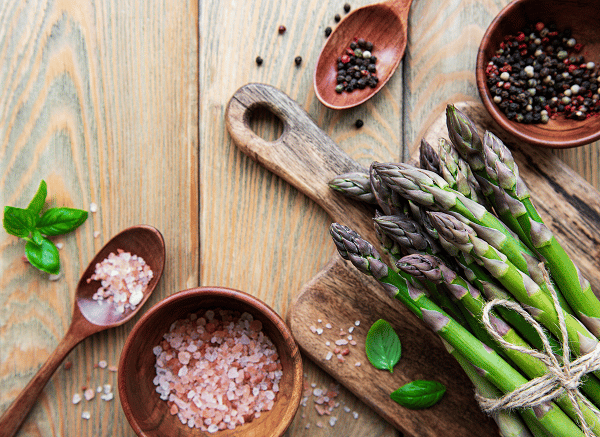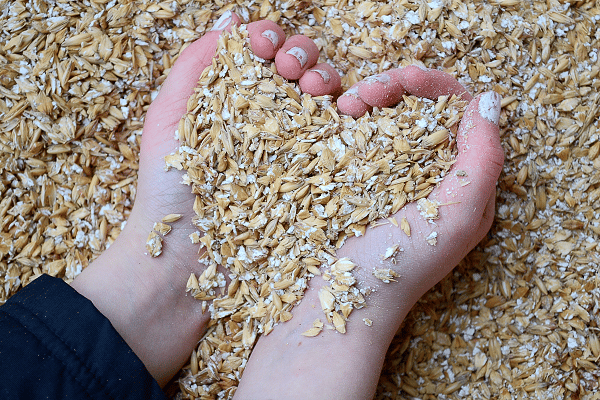Most people have heard of probiotics, but what about prebiotics? Prebiotics are a type of carbohydrate that escape digestion and reach the large intestine, where they stimulate the growth and activity of beneficial bacteria. There are many different prebiotic foods that you can eat to improve your gut health. This article will examine some of the most popular prebiotic foods and why they are so beneficial! So if you want to learn more about improving your gut health, read on!
Contents
How Prebiotics Work

Prebiotics are the dietary fiber that serves as food for probiotics, the “good” bacteria that live in your gut. Probiotics are beneficial for overall health, but they need a regular supply of prebiotics to survive and thrive. When you eat prebiotic-rich foods, the prebiotics travel through your digestive system undigested, they reach your large intestine, where probiotics feed on them.
This process stimulates the growth and activity of probiotics, promoting a healthy gut microbiota. Prebiotics also promote regularity, help prevent digestive disorders, and boost immunity. In addition, they may help to lower cholesterol levels and protect against certain types of cancer. So if you’re looking for a way to support your gut health, consider adding some prebiotic-rich foods to your diet.
Types Of Prebiotics

Prebiotics come in a few different forms. However, to fully understand them, it’s essential to take a brief look at each type.
- Xylooligosaccharides Prebiotics (XOS): XOS prebiotics are natural prebiotics extracted from plant fiber.
- Inulin Prebiotics: Inulin is a prebiotic in Jerusalem artichokes, bananas, garlic, and onions. Inulin prebiotics promotes regularity, prevent constipation, and boost immunity.
- Fructo-oligosaccharides (FOS): FOS is a prebiotic in chicory root, asparagus, garlic, and onions. FOS prebiotics is a class of carbohydrates composed of short chains of fructose molecules, a specific sugar form. Enzymes are used to create FOS.
- Galacto-oligosaccharides (GOS): GOS is a prebiotic type found in beans, legumes, and some types of fruit. GOS prebiotics is available in two forms: lactose as the starting material and the other produced by a chemical reaction that uses galactose as a reactant. GOS may also be from plant fibers linked in a chain of galactose units.
- Resistant Starch (RS): RS is a type of starch that is not digested by enzymes in the stomach and instead travels through our bodies without being modified.
- Human Milk Oligosaccharides (HMOs): HMOs are a prebiotic type found in human breast milk. Selective feeding of particular strains of Bifidobacteria within the infant’s developing digestive system is typical in HMOs. These molecules have intricate structures and are only in breast milk.
- Isomaltooligosaccharide (IMOs): IMOs are a prebiotic type found in some types of honey. IMO extract is a combination of short-chain carbohydrates produced from maltose by microorganisms.
If you are learning about prebiotics, you may be wondering which foods contain them. Some of the most prebiotic-rich foods include:
Bananas

Bananas are a delicious and nutritious snack, but did you know that they also contain prebiotics? Studies have shown that prebiotics can help to increase the diversity of gut bacteria, which can, in turn, improve overall health, which is essential because the gut microbiota plays a role in many aspects of human health, including immunity, digestion, and metabolism.
While many foods contain prebiotics, bananas are an excellent source due to their high soluble fiber content. So next time you reach for a banana, remember that you do not just satisfy your sweet tooth – you’re also helping to support your gut health!
Chicory Root

Chicory is a perennial herb that is native to Europe and Asia. The plant roots are typically roasted and used as a coffee substitute or add-in. However, chicory root also contains inulin, a type of prebiotic fiber. Along with its gut health benefits, chicory root is a good source of antioxidants and minerals, such as magnesium and potassium.
It can even help lower blood sugar levels. So chicory root is an excellent option if you’re looking for a healthy alternative to coffee or want to boost your gut health.
Garlic

Garlic has been a flavoring and medicinal herb for centuries, dating back to the Ancient Egyptians. Today, garlic is a healthy food with many benefits. One of these benefits is that garlic contains prebiotics. In addition to prebiotics, garlic also contains vitamins A, C, and B6 and minerals like manganese and selenium.
All of these nutrients contribute to garlic’s overall health benefits. So next time you’re looking for a way to add flavor to your food or boost your health, reach for some garlic!
Honey

Studies have shown that a diet rich in prebiotics leads to a healthy gut microbiome and a lower risk of gastrointestinal disorders. Raw honey contains an abundance of prebiotic compounds that nourish the beneficial gut bacteria that keep our digestive system healthy. Additionally, raw honey is a natural source of antioxidants and anti-inflammatory compounds that can help to protect the body from disease.
The health benefits of raw honey are numerous, making it a “superfood” worth incorporating into your diet. And enjoy knowing that you’re doing something good for your gut health! When shopping for raw honey, select a product that has been minimally processed and is free of added sugars or other ingredients.
Asparagus

Asparagus is a nutrient-rich vegetable that has amused and delighted taste buds for centuries. This food has a long, thin stalk with small branches and is usually green or white. Asparagus is a versatile ingredient you can enjoy, cooked or raw, making it a popular choice for both savory and sweet dishes. But this vegetable is more than just delicious – asparagus also contains prebiotic fiber.
As a result, including asparagus in your diet may help promote gut health and overall wellness. So next time you’re at the grocery store, pick up some asparagus – your taste buds and your gut will thank you!
Oats

Oats are a cereal grain popular for their nutritional value and versatility. Oats are a good source of fiber, protein, and vitamins; you can enjoy them in various ways. One lesser-known but equally important benefit of oats is their containing prebiotic fiber.
Consuming prebiotic fiber can help to support the growth of beneficial bacteria, which can, in turn, help to improve digestion, boost immunity, and even aid in weight loss. So the next time you’re looking for a nutritious breakfast option, don’t forget about oats!
Start Adding Some Prebiotic Foods To Your Diet!
There are many different prebiotic foods that you can incorporate into your diet to support gut health. Each of these foods contains one or more different prebiotic fiber, which helps nourish the beneficial bacteria in your gut. So whether you are dealing with digestive issues or just looking for ways to boost your overall health, be sure to add some prebiotic foods into your diet! By doing so, you’ll be on your way to a healthy gut and a happy life!


